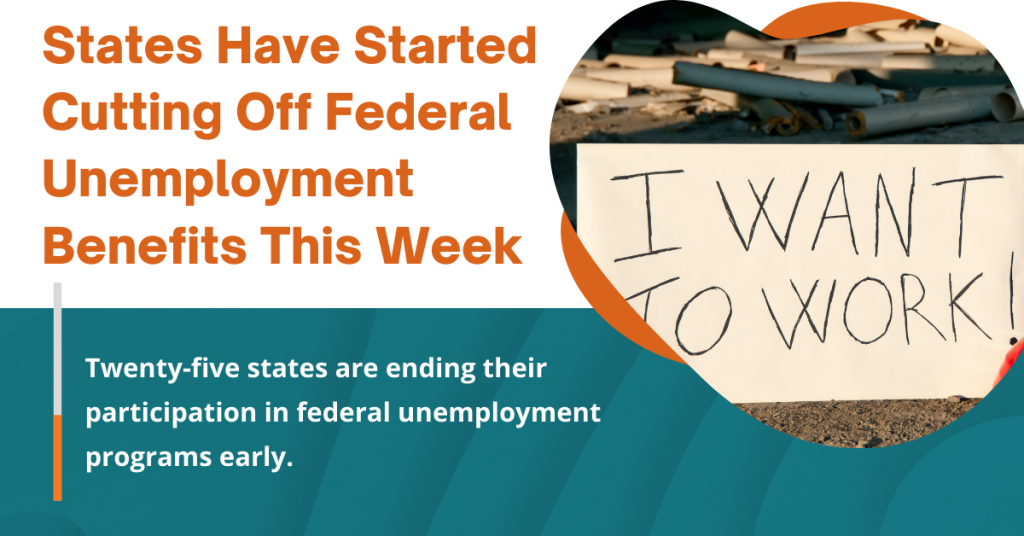
Twenty-five states are ending their participation in the federal unemployment programs beginning June 12th, almost three months before their official expiration on September 6th.
Most of the states are withdrawing from all federal programs created by the CARES Act which includes:
- A weekly supplement to benefits (currently $300 a week)
- Pandemic Unemployment Assistance, for the self-employed and other workers who don’t typically qualify for state benefits
- Pandemic Emergency Unemployment Compensation for the long-term unemployed who’ve exhausted their state aid.
States Withdrawing Completely
Alaska, Iowa, Mississippi, and Missouri will be the first to opt-out of the pandemic-era programs as of June 12th with the remaining 21 states opting out no later than July 10th: Alabama, Arkansas, Georgia, Idaho, Indiana, Iowa, Maryland, Mississippi, Missouri, Montana, Nebraska, New Hampshire, North Dakota, Oklahoma, South Carolina, South Dakota, Tennessee, Texas, Utah, West Virginia, and Wyoming.
Affected workers will lose a $300 weekly supplement to benefits, however, they’ll still get their typical state allotment of aid (which generally replaces half a lost paycheck).
Certain workers won’t just get a benefit cut — they’ll lose aid entirely. Those groups include the long-term unemployed (who’ve exhausted their maximum allotment of state benefits) as well as gig workers, the self-employed, freelancers, and others collecting what’s known as Pandemic Unemployment Assistance.
Four States Limit Withdrawal
Four states — Alaska, Arizona, Florida, and Ohio — are only ending the $300-a-week payment while keeping the other programs intact. (States ending the $300 weekly payment are also withdrawing from a separate program, created in December, that pays an additional $100 a week to some self-employed workers.)
“Officials claim the extra benefits are causing workers to stay on the sidelines, making it harder for businesses to hire.”
Some States Will Offer Back-To-Work Bonuses
Four of the states — Arizona, Montana, New Hampshire, and Oklahoma — are paying return-to-work bonuses in lieu of the enhanced unemployment benefits to encourage residents to accept jobs.
- Arizona’s state Back to Work program offers one-time $1,000 payments to unemployment recipients who accept a part-time job and $2,000 to full-timers.
- New Hampshire, via its Summer Stipend Program, is paying $500 and $1,000 bonuses for part-time and full-time positions, respectively.
- Montana and Oklahoma are paying $1,200 to those who accept full-time work.
